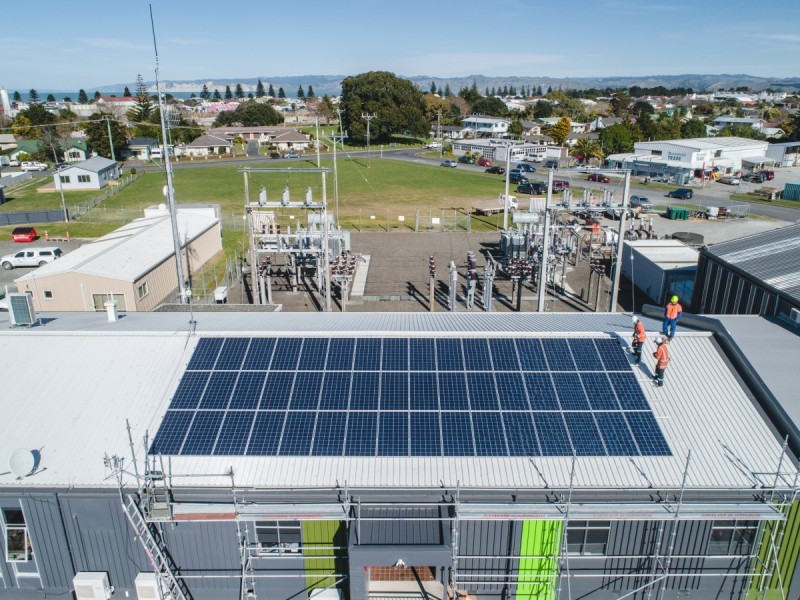
In July 2019, Tairāwhiti-based infrastructure company Eastland Group and their sole shareholder Trust Tairāwhiti signed up to the Climate Leaders Coalition.
“Climate change is a real, pressing and complex challenge,” said Eastland Group chief executive Matt Todd. “We believe we can be a leader in steering Tairāwhiti towards zero carbon through renewable energy and facilitating the transition to electric vehicles.
“By signing up to the Coalition, we committed to measuring our greenhouse gas emissions, publicly reporting on these, setting a reduction target for all of our businesses, and working with suppliers to help them reduce their emissions.
“For Eastland Group to play its part, we first needed to robustly measure our emissions across all our businesses – Eastland Port, Gisborne Airport, Eastland Network and Eastland Generation – and those of our shareholder, Trust Tairāwhiti.”
Eastland Group’s general manager energy solutions Steven Follows is leading the work for the company.
“Eastland Group’s first greenhouse gases inventory benchmark is based on our financial year ending March 31 2019,” said Mr Follows.
The bulk of emissions are from the organisation’s geothermal power plants, marine operations, log yard waste and from the use of electricity as it’s transported over the network (this will improve over time as the grid decarbonises).
“The results were largely to be expected given the areas in which we operate, and are comparable to the results shared by other large infrastructure companies in these sectors,” said Mr Follows.
“Now we have a benchmark we can implement ways to reduce our emissions and reach our emission reduction targets.”
The company has set a bold target to reduce emissions from all businesses and operations by 21 percent by 2025.
Eastland Generation is treated separately and is aiming to achieve carbon neutrality by 2030.
Mr Follows believes that corporate attitudes to climate change are where health and safety was ten years ago.
“These days, health and safety is a fundamental part of every business. I believe that, within the next three to five years, measures to tackle climate change will be just as embedded in company culture. We must ensure that the infrastructure we are building today is fit for purpose in 50 to 60 years to mitigate the risks associated with climate change.”
The threats of climate change include increased flooding; increased acidification of oceans; more severe weather events; more severe drought and longer periods of soil moisture deficit. The NIWA climate change projections for Tairāwhiti (released in November) provides detailed information on the climate changes the region can expect.
Together with Trust Tairāwhiti, Eastland Group already champions a variety of environmentally-focused projects that support sustainability within the Tairāwhiti region.
As part of the focus on sustainable and renewable energy, over 90 percent of Eastland Group’s non-commercial vehicle fleet is electric.
They have established a region-wide electric vehicle fast charging network; will be introducing New Zealand’s first electric water truck at Eastland Port; and are undertaking long term solar PV trials, covering both domestic and commercial use.
They are also continuing explore options for renewable energy generation in Tairāwhiti, including solar PV, wind, and wood waste to energy.
Trust Tairāwhiti chief executive Gavin Murphy said the science was clear.
“In order to reduce our emissions to stay within a temperature increase of 1.5 °C within ten years, we need to act now. Aiming for net zero by 2050 is simply too little too late.
“Being a great ancestor for Tairāwhiti is one of our core values at the Trust.
“Some of the ways the Trust will reduce emissions include phasing out the Trust’s internal combustion engine cars, along with prioritising walking, cycling and the use of its electric vehicles.
“Guided by our new Wellbeing Framework He Tohu Ora, the Trust’s future funding and investment decision-making will consider whether projects and activities are not only supporting the reduction of greenhouse gas emissions in the region, but also how they factor in community and economic resilience to the impacts that we know climate change will bring to the region.”
Mr Murphy sees signing up to the Climate Leaders Coalition as central to the Trust getting its own ‘emissions house’ in order.
“It’s been a steep learning curve so far and, in partnership with Eastland Group and others, we are keen to support businesses across the region to look at how they can reduce their own emissions.”
END
For further information go to:
https://www.eastland.nz/eastland-group/about-us/structure/climate-commitment/
http://www.climateleaderscoalition.org.nz
Note: These are science-based reduction targets. The Eastland Group and Trust Tairāwhiti target is set using the Absolute Emissions Contraction methodology. Eastland Generation is split out separately and follows the Sector Decarbonisation Approach, which is the standard used in this sector.

